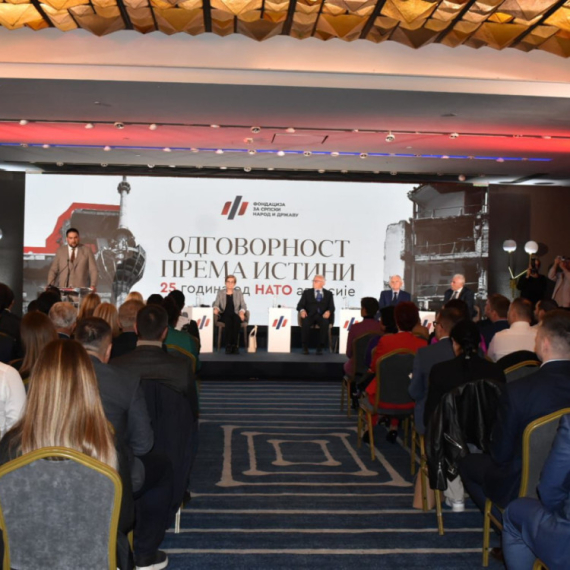"Kosovo independence opens new chapter"
Kosovo independence marks the end of an era that saw the worst crimes in modern European history, says Martti Ahtisaari.
Saturday, 08.03.2008.
10:25

Kosovo independence marks the end of an era that saw the worst crimes in modern European history, says Martti Ahtisaari. The former UN envoy for talks on Kosovo’s future status told a seminar at the Finnish Foreign Policy Institute in Helsinki that Russia and Serbia had clearly set out their own positions, but that it was time to “open a new chapter.” "Kosovo independence opens new chapter" With that in mind, Ahtisaari reiterated that cooperation within the International Contact Group, including the Russian representative had been excellent, and that Moscow had changed its relations only recently. In his speech, the former Finnish president set out one more time the most important stages of his mission that started in November 2005, adding that it was clear to him from the outset, on the basis of documents given to him by U.S. Under Secretary of State Nicholas Burns, that Kosovo would not be able to return to Belgrade’s sovereignty. He added that, as early as the initial contacts with Belgrade and Pristina, it became clear to him that no compromise could be reached, stressing that, ultimately, there was no ideal solution. The Ahtisaari plan for supervised independence was, he said, the only possible solution that could lead to stability in the Balkans. The former UN envoy said that he hoped that all countries, especially EU member-states that had not done so already, would recognize Kosovo’s unilaterally declared independence. Martti Ahtisaari (FoNet, archive)
"Kosovo independence opens new chapter"
With that in mind, Ahtisaari reiterated that cooperation within the International Contact Group, including the Russian representative had been excellent, and that Moscow had changed its relations only recently.In his speech, the former Finnish president set out one more time the most important stages of his mission that started in November 2005, adding that it was clear to him from the outset, on the basis of documents given to him by U.S. Under Secretary of State Nicholas Burns, that Kosovo would not be able to return to Belgrade’s sovereignty.
He added that, as early as the initial contacts with Belgrade and Priština, it became clear to him that no compromise could be reached, stressing that, ultimately, there was no ideal solution.
The Ahtisaari plan for supervised independence was, he said, the only possible solution that could lead to stability in the Balkans.
The former UN envoy said that he hoped that all countries, especially EU member-states that had not done so already, would recognize Kosovo’s unilaterally declared independence.


























































Komentari 22
Pogledaj komentare